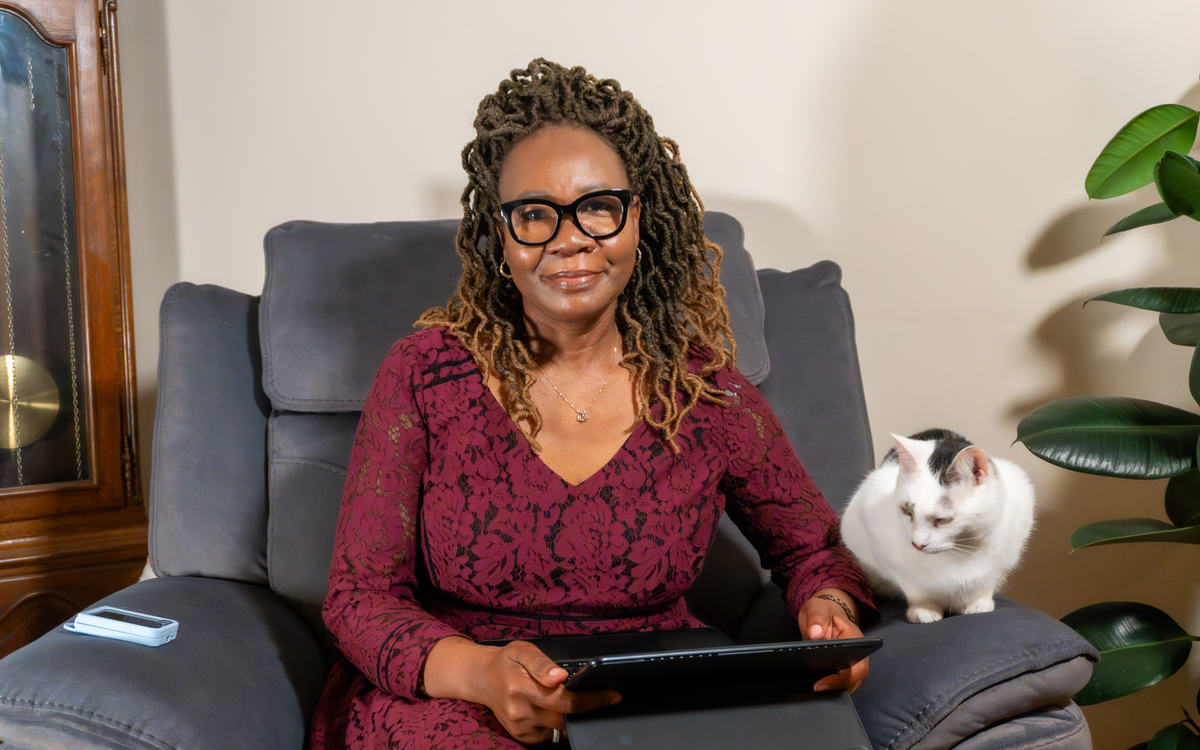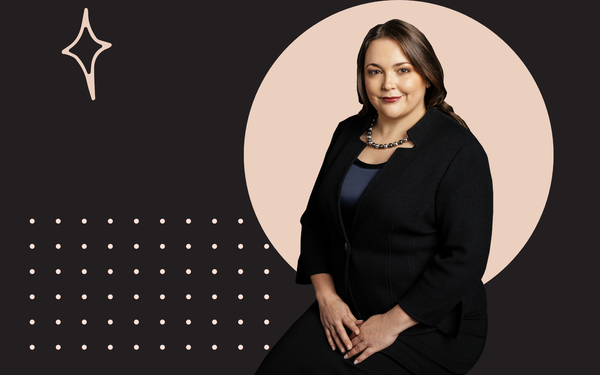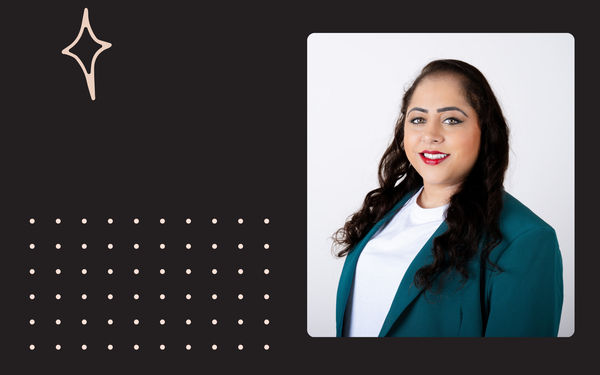Dr. Miriam Mavia-Zajac: Revolutionizing Neurodiversity Diagnosis with Precision & Compassion

Part of the series: 30 Founders Shaping the Future of Mental Health in 2025
For many neurodivergent adults, the path to understanding is paved with misdiagnoses, dismissal, and a gnawing sense of self-doubt. Dr Miriam Mavia-Zajac - Consultant Chartered Psychologist, is changing that. As the founder and CEO of Neurodiverse You, of an award-winning service, she’s reshaping how diagnosis is done, not just by evaluating symptoms, but by deeply seeing the person behind them, and taking them beyond the diagnostic process.
Her approach weaves together gold-standard tools like the ADOS-2 and ADI-R with psychologically rich, culturally informed exploration. It’s a model built for the stories traditional systems miss: the high-masking, high-achieving individuals, especially women, people of colour, and LGBTQ+ adults, whose struggles have been overlooked or misread for far too long.
At the heart of Dr Mavia-Zajac’s work is a vital truth: neurodivergence doesn’t always show up the way textbooks say it should. For those who’ve spent a lifetime trying to adapt, hide, or perform their way through the world, her model offers more than just a diagnosis. It offers recognition.
Through in-depth exploration, multidisciplinary insight, and thoughtful post-assessment support, Neurodiverse You helps clients uncover who they’ve always been, beneath the layers of survival and silence.
In this piece, Dr Mavia-Zajac reflects on why timely, nuanced assessment can be transformative, how her team makes room for long-misunderstood stories, and what it means when a client finally says: “I wasn’t broken—I was just unseen."
1. What led you to develop Neurodiverse You’s distinctive model, one that not only offers immediate access to assessment, but also uses gold-standard tools like the ADOS-2, ADI-R, and DIVA-5 in combination with culturally attuned, psychologically nuanced approaches?
The inspiration behind Neurodiverse You stemmed from witnessing the prolonged wait times and fragmented diagnostic pathways that many adults face when seeking assessments for autism and ADHD. Recognising the urgency and importance of timely evaluations, we developed a model that offers immediate availability while integrating gold-standard diagnostic tools like the ADOS-2, ADI-R, and DIVA-5.
But we also knew that standard tools alone are not always enough, especially for individuals with non-stereotypical presentations. High-IQ, high-performing adults who have spent years masking or “chameleonising” often don’t "look" autistic or ADHD in the ways most tools are designed to detect. Their symptoms may be internalised, exhaustion, extreme competence, overwhelm, hypervigilance, rather than external or disruptive. And in many cases, even acknowledging their suffering feels like weakness because they’ve been praised for coping silently.
To honour the complexity of these presentations, our model goes further. We use additional tools like the Cultural Formulation Interview (CFI), SWAN questionnaires, and often offer exploratory sessions before the formal assessment process begins. These sessions allow clients to reflect on their histories, understand their patterns, and enter the assessment space with more clarity and self-compassion. Our approach is about seeing what others often miss, and doing justice to the subtle, quiet, but very real ways that neurodivergent adults live their lives.
2. How does Neurodiverse You’s model create a different kind of experience for adults who have been misdiagnosed, masked their traits, or gone through life feeling misunderstood?
At Neurodiverse You, we understand that by the time many adults reach us, they are not just seeking answers, they are seeking repair. Often, they’ve carried a lifetime of internal contradictions: praised for how well they cope, yet privately overwhelmed; labelled with anxiety or personality disorders, yet sensing something deeper was being missed. For those who have masked their traits for years, or been misdiagnosed due to high performance, cultural expectations, racial bias, or gendered norms, our model is designed to do more than diagnose, it is designed to recognise.
Working as a multi-disciplinary team (MDT) comprised of psychologists, psychiatrists, OTs, Speech and Language Therapist, and Nurses, we begin with exploratory sessions, psychologically rich conversations that create space for the individual to tell their story outside the pressure of performance or pathology. In addition to gold-standard tools, we also draw on additional frameworks and qualitative mapping techniques that allow subtle traits to surface. This is especially important for those with internalised symptoms, or who have learned to “chameleonise” in order to belong.
But what truly sets us apart is the continuity. We offer post-diagnostic support. Many clients describe the moment of diagnosis as both relieving and disorienting. Identity integration is rarely instant. That’s why we offer coaching, therapeutic reflection, and psychoeducation, to support individuals as they make sense of who they’ve always been underneath the labels.
After the clinical outcome, we walk alongside people as they reclaim their narratives, reframe their experiences, and begin the slow, powerful work of becoming visible, to themselves and others, for the very first time.
3. Can you share a story of how someone's life changed after receiving their diagnosis through this personalised approach?
One of the most profound stories I carry is that of Amara, a 34-year-old non-binary brown woman who came to us with a long history of psychiatric diagnoses: emotionally unstable personality disorder (EUPD), generalised anxiety (GAD), depression, social anxiety, OCD, PTSD, and disordered eating. She had spent years cycling through medications - antidepressants, anxiolytics, even antipsychotics. None brought lasting relief. Many caused unbearable side effects. But what the system never asked was: What if the problem wasn’t her mind, but how it had been misread?
Amara was perceptive, expressive, and deeply attuned to others, so attuned, in fact, that she often dissolved in the emotional needs of those around her. Her dissociation was chalked up to trauma alone. Her expressive nature was framed as emotional instability. But in our exploratory sessions, something else began to surface: not disorder, but defense. The hypersensing, the emotional intensity, the exaggerated self-expression were not dysfunctions, they were data. Signs of a neurodivergent mind that had learned to perform stability while internally bracing for collapse.
She had grown up in a Christian household, where being a “good girl” meant being of servitude, agreeable, accommodating. Her male relatives, whose ADHD or autism traits were externalised and disruptive, were recognised and supported. But Amara, compliant, articulate, eager to please, learned to survive through invisibility. To speak gently. To carry burdens quietly. And behind that silence was another silenced truth: her sexuality. In a religious context where deviation from the norm was equated with disobedience or sin, Amara’s very identity had to be contorted into acceptability.
She didn’t just mask her neurodivergence. She masked her entire self into total erasure.
During our Cultural Lens session, it became clear that Amara’s story hadn’t been simple, it had just been repeatedly misnamed. Her traits weren’t absent; they’d been misunderstood, reframed through the wrong lens. The emotional intensity, the empathy overload, the shutdowns under pressure, they weren’t signs of instability. They were markers of masked neurodivergence. Even her eating disorder, long treated as a symptom of anxiety or control, began to make more sense: a longstanding sensory sensitivity to textures, colours, and smells that had never been taken seriously, so the result was disordered eating. Once we placed her experiences in their proper psychological and cultural context, the fragments of her history started to align. When diagnosed her ADHD & ASD (AuDHD) profile, she cried, not from shock, but from the weight of being recognised. “I always knew,” she said, “but I wasn’t allowed to know it out loud. Until now. I’m meeting myself for the first time.”
Her diagnosis was not the start of a label. It was the start of a return to the self. Since then, Amara has started ADHD medication and often jokes, “The fog is lifting.” But more than clarity, what she gained was coherence. She now understands why certain rooms drained her, why praise felt like pressure, and why helping others had become a form of self-protection. She’s beginning to reclaim her voice, boldly, queerly, neurodivergently. She sets boundaries. She rests without apology. She chooses truth over performative peace.
Amara was never too much. She was simply too misread for too long. Now, she is not asking for permission, she is owning her place. Fully. Freely. Finally.
Are you a woman leader with an inspiring journey to tell? Founded by Women is on a mission to elevate and amplify the voices of women making an impact.
If you're breaking barriers, driving change, or paving the way for others, we’d love to feature your story. Get in touch with us today!
👉 Contact Us


